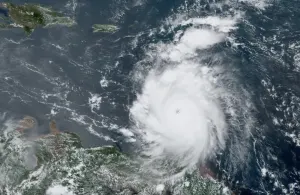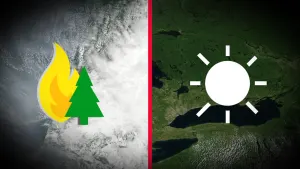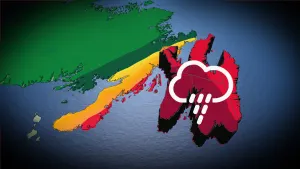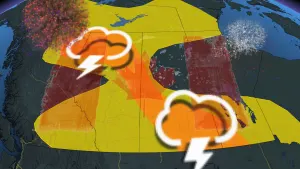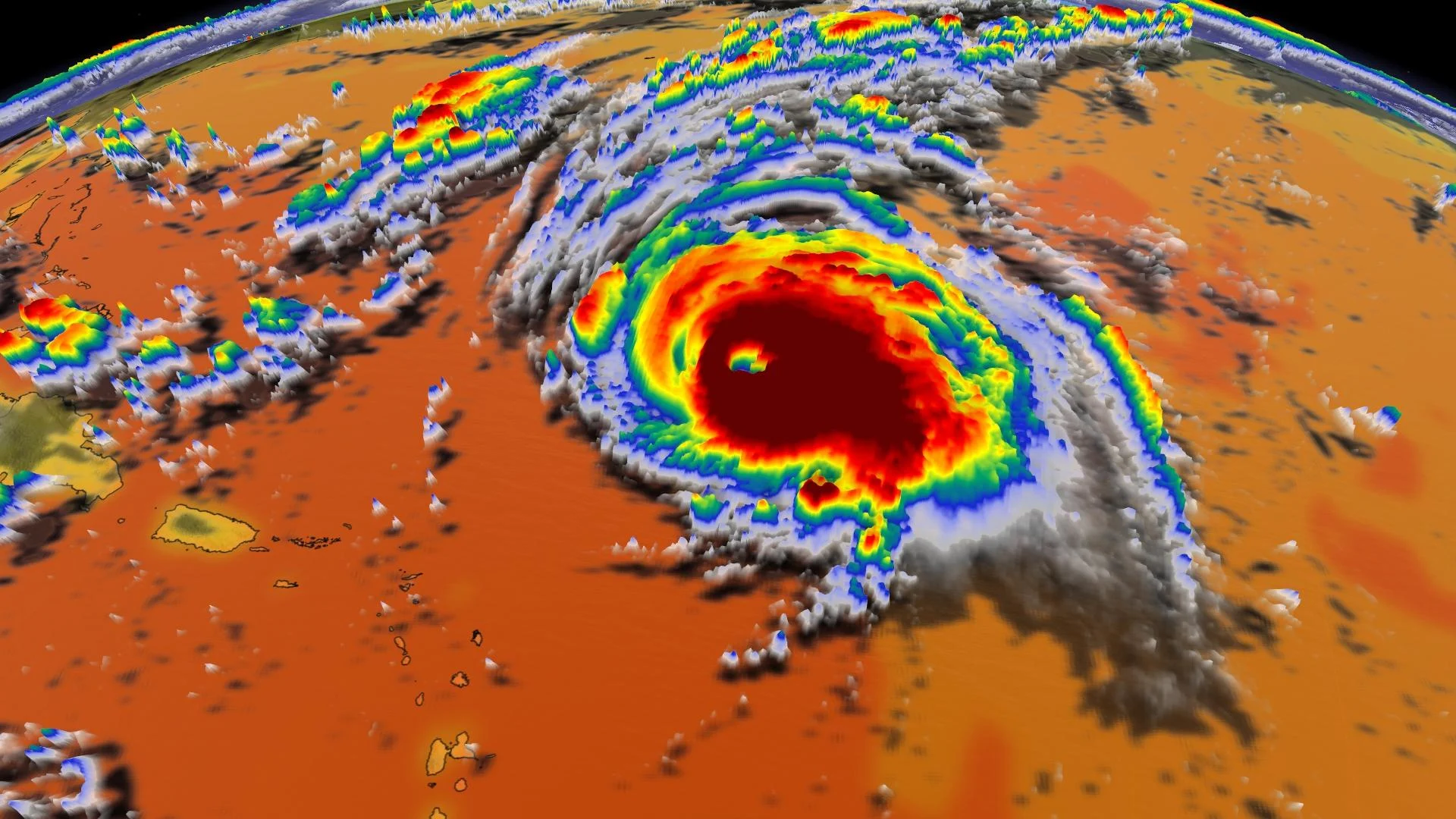
Hurricane Sam strengthens more, watching possible Atlantic impacts next week
Hurricane Sam will likely avoid direct impacts in Atlantic Canada, but the region could still feel some effects from the storm early next week.
Hurricane Sam experienced something of a renaissance on Wednesday night, growing the strongest we’ve seen the storm in days, and it will likely remain a powerful storm through this weekend as it slowly tracks northwest through the central Atlantic Ocean. Parts of Atlantic Canada should remain on alert for potential impacts early next week.
MUST SEE: Hurricane season is heating up again. What happens when we run out of names?
Thursday evening's update from the U.S. National Hurricane Center (NHC) found Hurricane Sam about 965 km south-southeast of Bermuda, moving northwest at around 22 km/h. The storm remains at Category 4 strength, with winds of 230 km/h.
“Some fluctuations in intensity are expected during the next couple of days, but Sam is forecast to remain a major hurricane through Saturday, with more significant weakening anticipated later in the weekend,” the NHC says.

Sam first became a major hurricane – which is to say, Category 3 strength or higher – on Saturday, and if it retains by Sunday, it will be the fifth longest-lived major Atlantic storm on record.
The agency’s latest forecast calls for Sam to stay the course as it tracks through the central Atlantic Ocean, slowly picking up speed through this weekend as it rounds the edge of a ridge of high pressure over the northeastern Atlantic.
Swells generated by Sam will impact the Lesser Antilles for the next several days. Swells are expected to reach Bermuda and the Bahamas in a couple of days, and then spread to the United States East Coast late this weekend. These swells could cause life-threatening surf and rip currents.
Sam is the seventh hurricane of the 2021 Atlantic season. Hurricane season traditionally runs from the beginning of June through the end of November.
SAM TO ACCELERATE DURING THE WEEKEND, NEWFOUNDLAND MAY ESCAPE THE WORST
Forecasters are closely watching Sam for potential Canadian impacts, especially with the recent damage in Newfoundland from Hurricane Larry.

Most models are in agreement that a direct hit on Newfoundland is not in the cards, though an unrelated low-pressure system may tug the storm a little further west than initially expected.
As it passes by the island, it may still bring strong winds and a measure of rain to the Avalon Peninsula, along with rough seas – impacts that will become clearer as the storm progresses through the weekend.

RELATED: Hang on safely through the Atlantic hurricane season with these tips
Sam isn’t the only storm in the Atlantic anymore.
Tropical Storm Victor formed in the far eastern Atlantic Ocean on Wednesday. Though forecasters initially expected the storm to attain hurricane status briefly, that now seems off the table, and Victor will remain a tropical storm over the next few days before slowly weakening. The system will remain far out to sea and should pose no real threat to land.
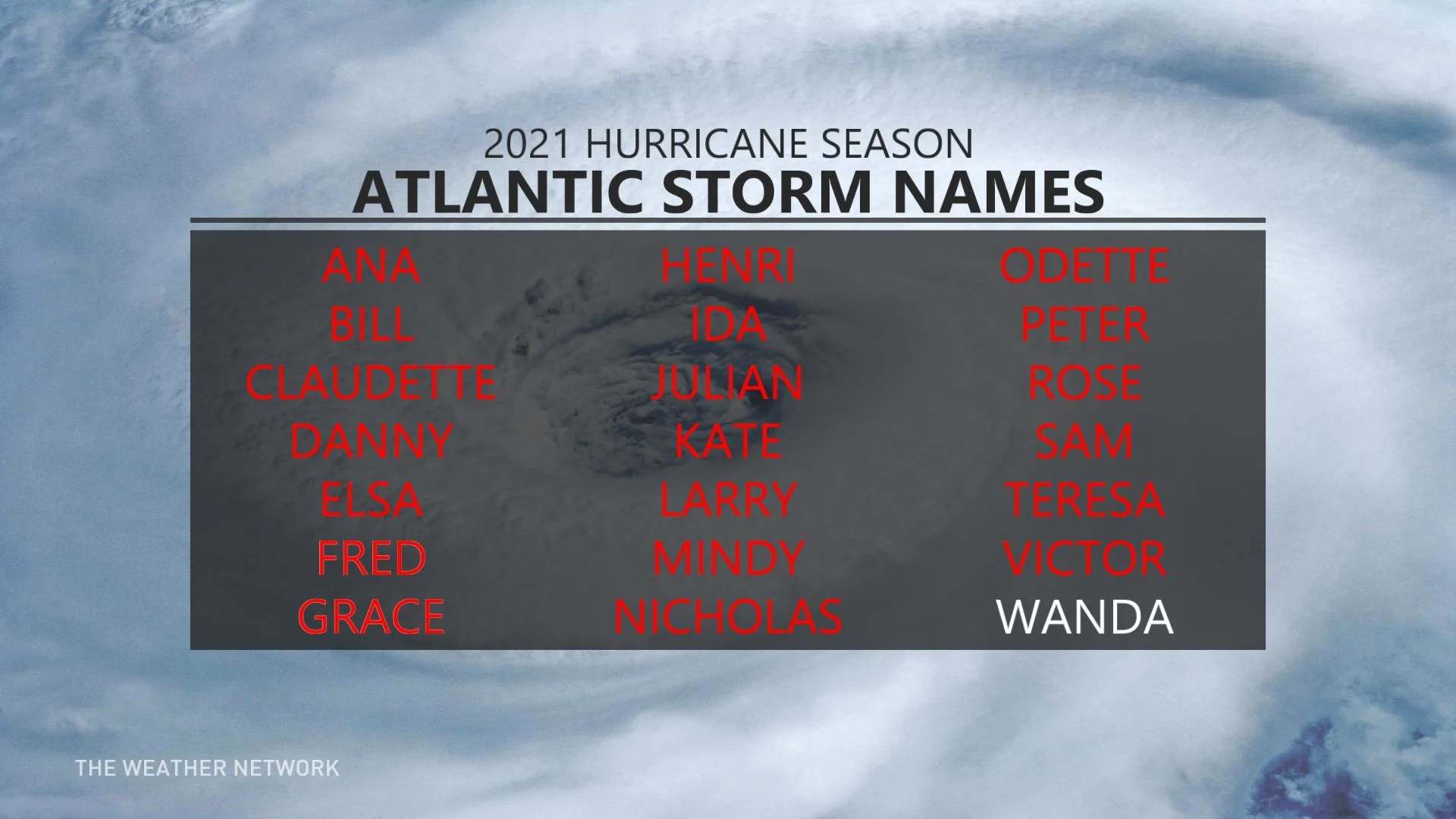
Following Victor’s formation, there’s just one name left on this year’s list of Atlantic storm names. The next and final name on the list is Wanda.
Once we exhaust this year’s official list of names, all subsequent storms will be named using an alternate list, beginning with Adria. This will be the third year since 2005 where such an overflow will occur, and the second in a row.
With its 20 named storms, this year is tied for third place (with 1933, in the pre-satellite era) for most active hurricane season on record, with two months left to go. 2020, with its 30 named storms, remains in top spot.
Be sure to check back for the latest updates on the Atlantic hurricane season.







